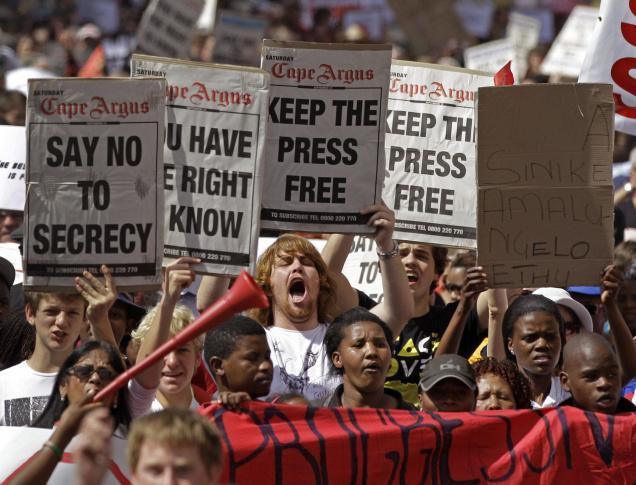The South African National Editor’s Forum (Sanef) says local media should never forget the darkest days of censorship in South Africa, and need also take a minute to think about where it currently stands in terms of its freedom to report.
The declaration comes a day after the 28th anniversary of Black Wednesday, now Media Freedom Day, which is recognised as a hugely significant moment in the context of media censorship in South Africa. On 19 October 1977 the Apartheid government banned several publications including The World, The Weekend World, Pro Veritate, as well as 17 black consciousness movements amongst others.
The anniversary comes at a pivotal time in the current South African media landscape, amid potential new legislation that could further restrict journalist’s right to report.
“We should never forget the journey media in South Africa faced, because we fought very hard for this freedom to report freely. It is significant in the current context because we are in a climate where the Protection of State Information Bill may be signed into law,” says Sanef’s secretary general, Katy Katopodis.
Over the weekend President Jacob Zuma chose to commemorate the day by hosting a luncheon with senior editors and journalists, the topic of the day centred on the highly controversial Protection of State Informational Bill, as well as the possible establishment of a Media Appeals Tribunal. The latter is based on the premise that “freedom of the press should not be viewed as an absolute right”, and that the establishment of a tribunal accountable to parliament would better address complaints against the media.
While the media has actively pushed to ensure complete reporter freedom, Katopodis says such freedom would come hand in hand with a responsibility to report ethically and fairly at all times. This is particular in light of cases where the media has been accused, by the ruling party amongst others, of ‘biased and irresponsible’ reporting.
“I don’t believe that these instances are huge enough or detrimental enough to have moved us towards this discussion of a Media Appeals Tribunal,” she states.
“If someone feels that they have been wronged or a community feels the media hasn’t covered their cause in the correct way, has behaved unethically or expressed bias, then there are already avenues in place (to challenge the media).”
Amongst these avenues are approaching the Broadcast Complains Commission of South Africa (BCCSA), the Press Ombudsman or the Press Council of South Africa. All of these bodies have been ‘strengthened’ to ensure their legitimacy and credibility according to Katopodis.
“Over and above that, we as Sanef always encourage people that should that not work for someone, they are always able to go the legal route and seek legal remedies.” VOC (Mubeen Banderker)






 WhatsApp us
WhatsApp us 

